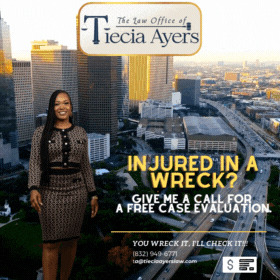Best Bail Bond Service Lawyers in Texas
Share your needs with us, get contacted by law firms.
Free. Takes 2 min.
Or refine your search by selecting a city:
List of the best lawyers in Texas, United States
About Bail Bond Service Law in Texas, United States
Bail bond services in Texas play a crucial role in the state’s criminal justice system. When an individual is arrested, a judge may set a bail amount to ensure the person returns to court for their trial. Bail bond companies help defendants secure release from jail before their court date by providing a guarantee (the bond) to the court on the defendant's behalf. In exchange, the company charges a non-refundable fee, typically a percentage of the bail amount. Texas closely regulates how bail bond services are provided to protect the interests of both defendants and the public.
Why You May Need a Lawyer
Navigating the bail bond process can be complicated, especially when faced with criminal charges or concerns about release conditions. Here are some common situations where legal help can be invaluable:
- You or a loved one is arrested and cannot afford to pay the full bail amount.
- You have questions or concerns about the terms or fees of a bail bond agreement.
- You need to understand the obligations and responsibilities involved after being released on bail.
- You believe the bail amount set is excessively high or unfair.
- Your bail has been revoked or you are facing allegations of a bail violation.
- Your property is being used as collateral for a bond and you want to protect your interests.
A lawyer who is familiar with Texas bail laws can help negotiate better terms, ensure compliance with legal requirements, and protect your rights throughout the process.
Local Laws Overview
Texas law governs how bail bond services operate through specific statutes and local regulations. Here are key points to know:
- Texas counties must have a Bail Bond Board to license and regulate local bail bond companies.
- Bondsmen must be licensed and meet financial requirements to operate legally in Texas.
- The fee for a bail bond is typically around 10 percent of the full bail amount, but this can vary.
- The court may deny bail or set high bail amounts for serious or repeat offenses.
- If a defendant misses a court date, the bail bond may be forfeited, and a warrant may be issued for the defendant's arrest.
- Texas law provides for personal bonds in certain circumstances, where no money is paid upfront but conditions must be met.
- If property is used as collateral, strict regulations exist to protect both the bond company and the property owner.
Frequently Asked Questions
What is a bail bond?
A bail bond is a written agreement by a third party (usually a licensed bondsman) ensuring that a defendant will appear in court after being released from jail.
How does the bail bond process work in Texas?
When bail is set, the defendant or their family pays a bondsman a fee (usually a percentage of the bail amount). The bondsman posts the full bail to the court, securing the defendant’s release.
What happens if the defendant does not attend their court date?
If the defendant misses court, the bail bond may be forfeited, and the bondsman has the right to locate and return the defendant to custody. Additional fees and legal actions may apply.
How much does a bail bond cost in Texas?
Bail bond fees in Texas are usually around 10 percent of the total bail amount, but this can vary by county and case specifics. This fee is non-refundable.
Can I use property as collateral for a bail bond?
Yes, Texas law allows the use of real property as collateral, subject to certain conditions and approval by the bond company and the court.
Are there alternatives to using a bail bond company?
Some defendants qualify for a personal bond, where the court releases them based on a signed promise to appear, or may pay the full bail amount to the court directly.
Can bail be denied in Texas?
Yes, for serious felonies or repeat offenders, Texas courts may deny bail at their discretion or set additional conditions for release.
What are the qualifications for a bail bond company or agent in Texas?
Bail bond agents must be licensed by the county’s Bail Bond Board, maintain a certain net worth, and follow local and state regulations.
Can I get my money back from a bail bond company?
The fee paid to a bail bond company is a service charge and is generally non-refundable, regardless of the case outcome.
What should I do if I have a dispute with a bail bond company?
First, try to resolve the issue directly with the company. If unresolved, you may contact your county Bail Bond Board or seek legal guidance for further action.
Additional Resources
If you need further information or help regarding bail bond services in Texas, consider these resources:
- Your county's Bail Bond Board, which oversees bail bond companies and agents
- Texas Department of Licensing and Regulation (for general licensing information)
- Local legal aid organizations offering free or low-cost legal services
- Texas State Bar Association for lawyer referrals and consumer protection information
- County courthouse or local sheriff’s department for details on jail and bail procedures
Next Steps
If you or a loved one is in need of bail bond services or legal assistance, consider the following steps:
- Gather all available information about the arrest and the bail amount set by the court.
- Contact a reputable, licensed bail bond company in your county.
- If you have concerns or complex issues, consult with a criminal defense lawyer experienced in Texas bail bond law.
- Review and understand any paperwork before signing agreements with a bail bond service.
- Keep in regular communication with your attorney and bondsman to ensure compliance and understand your obligations.
- If financial hardship is a concern, ask about alternatives like personal bonds or payment plans.
Seeking professional legal advice early can protect your rights and help you navigate the complicated bail bond system in Texas.
Lawzana helps you find the best lawyers and law firms in Texas through a curated and pre-screened list of qualified legal professionals. Our platform offers rankings and detailed profiles of attorneys and law firms, allowing you to compare based on practice areas, including Bail Bond Service, experience, and client feedback.
Each profile includes a description of the firm's areas of practice, client reviews, team members and partners, year of establishment, spoken languages, office locations, contact information, social media presence, and any published articles or resources. Most firms on our platform speak English and are experienced in both local and international legal matters.
Get a quote from top-rated law firms in Texas, United States — quickly, securely, and without unnecessary hassle.
Disclaimer:
The information provided on this page is for general informational purposes only and does not constitute legal advice. While we strive to ensure the accuracy and relevance of the content, legal information may change over time, and interpretations of the law can vary. You should always consult with a qualified legal professional for advice specific to your situation.
We disclaim all liability for actions taken or not taken based on the content of this page. If you believe any information is incorrect or outdated, please contact us, and we will review and update it where appropriate.
Browse bail bond service law firms by city in Texas
Refine your search by selecting a city.
















